The Ethiopian Empire, also known as Abyssinia, was a distinct and powerful African kingdom that lasted thousands of years. Despite numerous challenges, such as famine, drought, and civil war, the empire maintained its independence and cultural heritage for centuries.
This all changed in the late nineteenth and early twentieth centuries when European colonial powers set out to conquer and control the African continent. The Ethiopian Empire was at the forefront of this struggle because it was one of the few African nations that successfully resisted colonialism.
Abyssinia maintained its sovereignty and repelled colonial invaders through astute diplomacy, strategic military tactics, and unwavering determination.
This story of resistance and survival demonstrates the Ethiopian people’s strength and resilience and their rich cultural heritage. Join us as we explore the fascinating history of the Ethiopian Empire and its struggle against colonialism.
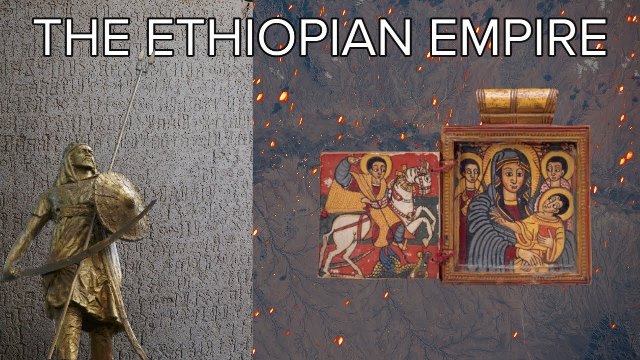
The Ethiopian Empire
The Ethiopian Empire was an African kingdom that lasted thousands of years. It was one of Africa’s oldest and most powerful empires, with a diverse cultural heritage that reflected its long history and diverse population. The empire’s capital was Gondar, known for its magnificent palaces, churches, and castles.
The Ethiopian Empire was known for its military prowess and strong central government. It was ruled by a monarchy, with the emperor as the head of state. Despite numerous challenges, such as famine, drought, and civil war, the Ethiopian Empire managed to maintain its independence and cultural heritage over the centuries.
The Ethiopian Empire was also helpful in the spread of Christianity in Africa. It was one of the world’s first nations to make Christianity its official religion, and it quickly became a center of religious and cultural influence in the region. This influence is still seen today in Ethiopia’s numerous ancient churches, monasteries, and other sacred sites.
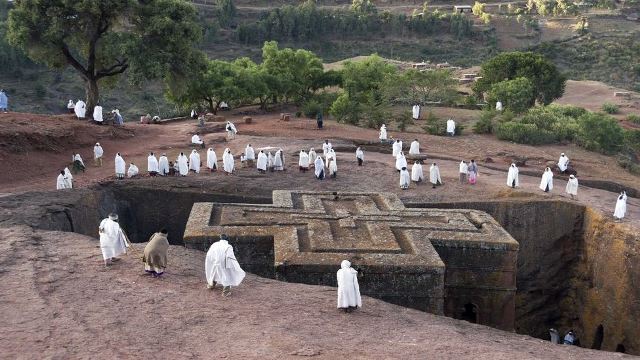
Ethiopian Empire’s Early Encounters With Colonialism
The Ethiopian Empire’s early encounters with colonialism occurred during the late 19th and early 20th centuries. Then, the European powers began scrambling to control the African continent.
Read: What is the 1884 Berlin Conference and its Impact on Africa Today?
The Battle of Adwa in 1896 was one of the first major clashes between the Ethiopian Empire and colonial powers. The Ethiopian Empire was at risk with the Kingdom of Italy, which was attempting to establish a colonial presence in Ethiopia.
But despite being vastly outnumbered, the Ethiopian forces led by Emperor Menelik II won this battle. This victory marked a significant milestone in the Ethiopian Empire’s resistance to colonialism. It was the first time an African nation defeated a European power in battle.
However, the victory at Adwa did not stop the European colonial powers from going further in their attempts to invade and control Ethiopia. But Emperor Menelik II was able to use this victory to negotiate favorable terms with the European powers. This included the recognition of Ethiopia’s independence and sovereignty. Also, this allowed the Ethiopian Empire to maintain its independence and avoid being colonized by the European powers.
The Ethiopian Empire and Its Diplomatic Resistance
Emperor Menelik II, who ruled the Ethiopian Empire at the time, was a brilliant diplomat and strategist. He understood the value of diplomacy in the fight against colonialism and used it to his advantage. One of his most important diplomatic efforts was the Treaty of Wuchale, which he signed with Italy in 1889.
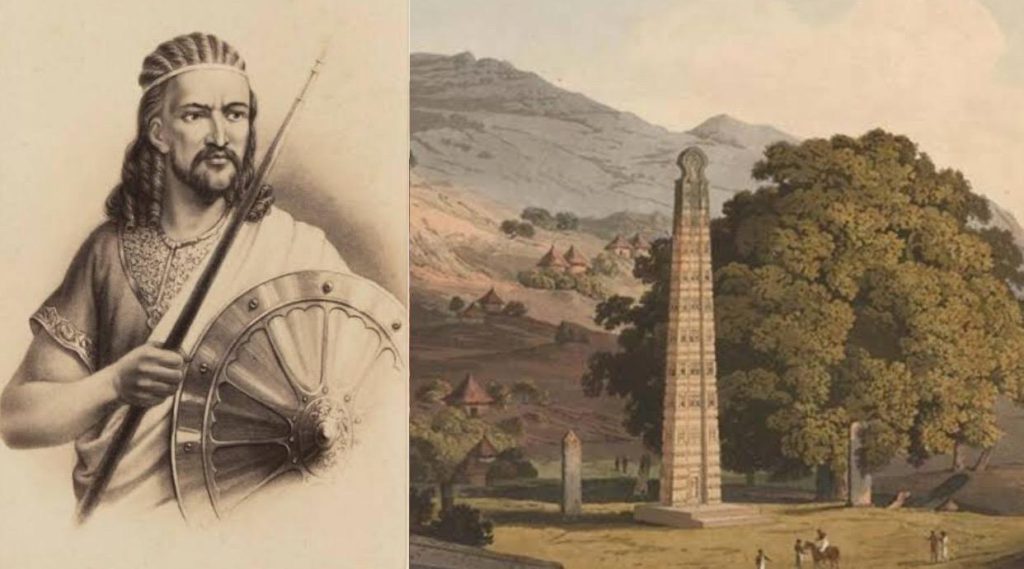
This treaty was essential for establishing the Ethiopian Empire’s independence and sovereignty. And it was used to secure favorable terms with European colonial powers.
The diplomatic efforts of Emperor Menelik II were not limited to treaty negotiations. He also used his diplomatic skills to build alliances and establish relationships with other African countries. This enabled him to present a united front against European colonial powers, ensuring Ethiopia was not alone in its struggle.
The Ethiopian Empire and Its Military Resistance
The Ethiopian Empire’s military resistance did not end with the victory at Adwa. Throughout the late nineteenth and early twentieth centuries, Ethiopians used military strength and strategic tactics to resist invasions and defend their independence.
As a result, they were able to mobilize their forces quickly and effectively. With the aid of taking advantage of their ground knowledge and warrior skills.
The Second Italo-Ethiopian War took place from 1935 to 1936. The Ethiopian Empire fought the war against the Kingdom of Italy, which wanted to establish a colonial presence in Ethiopia. This conflict ended with Ethiopia defeating Italy.
We Design & Develop Websites, Android & iOS Apps
Looking to transform your digital presence? We specialize in creating stunning websites and powerful mobile apps for Android and iOS. Let us bring your vision to life with innovative, tailored solutions!
Get Started TodayThe origins of the Second Italo-Ethiopian War (the Adwa War) can be traced back to the first Italo-Ethiopian War, which lasted from 1895 to 1896.
Following Italy’s defeat in the first war, Ethiopia maintained its independence. However, tensions between the two countries remained until they led to other conflicts in subsequent years. Under the leadership of Benito Mussolini, Italy relaunched an invasion of Ethiopia in 1935, seeking to establish a colonial presence in the region.
Read: Boer Wars: South Africa, Conflict, Colonialism, Resistance
The Response
The Ethiopian response to the invasion was swift and decisive. Emperor Haile Selassie I, who was the ruler of the Ethiopian Empire at the time, rallied his forces and led the resistance against the Italian invaders. Despite being outnumbered, the Ethiopian troops fought with great bravery and determination, eventually winning. The Italians were once again defeated in the fight for control!
Ras Imru Haile Selassie, a prominent Ethiopian military leader, led another important resistance movement. Ras Imru was able to organize a resistance force that successfully bullied the Italian forces by carrying out raids and ambushes that weakened their grip on the country.
The Ethiopian resistance also successfully gained the support of other African countries. These countries recognized the significance of Ethiopia’s struggle against colonialism and offered their assistance.
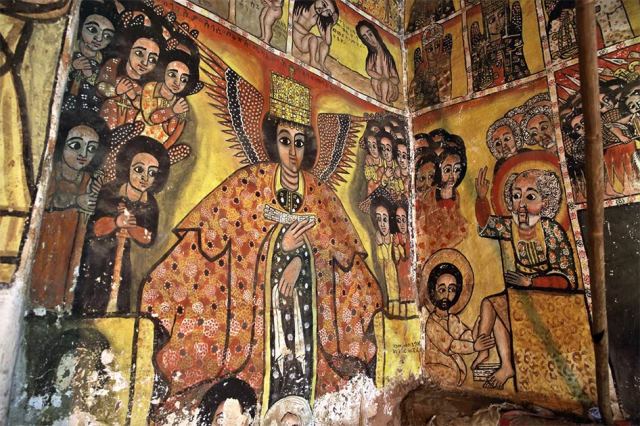
Fortunately, the Ethiopian resistance used effective guerrilla warfare tactics, allowing them to inflict significant damage on the Italian forces. It was also able to wear down the Italian forces over time, making it more difficult for them to maintain their hold on the country.
This was a critical factor in Ethiopia’s eventual victory over Italy. The weakened Italian forces were no match for the Ethiopian resistance in the final battle.
Ethiopia’s victory had broader implications for Africa as a whole. It demonstrates that African nations could resist and defeat European colonial powers. It also made them realize they could fight for freedom and that they truly deserved space. Ethiopia’s victory motivated some other African countries to fight for their own independence.
The Legacy of Ethiopian Resistance to Colonialism
The legacy of Ethiopian resistance to colonialism continues to inspire and inform the people of Ethiopia and the world today. The bravery and determination of the Ethiopian people in their struggle against Italian occupation and colonization have left a lasting impact on the nation and the world.
One of the most significant legacies of the Ethiopian resistance is the restoration of the Ethiopian Empire’s independence. The victory over Italy in 1896 marked the first time an African nation defeated a European power.
This demonstrated the strength and resilience of the Ethiopian people. The restoration of independence also served as a powerful symbol of hope and inspiration for other African nations struggling against colonial rule.
Another important legacy of the Ethiopian resistance is the legacy of Emperor Haile Selassie I, who played a key role in leading the resistance against Italian occupiers.
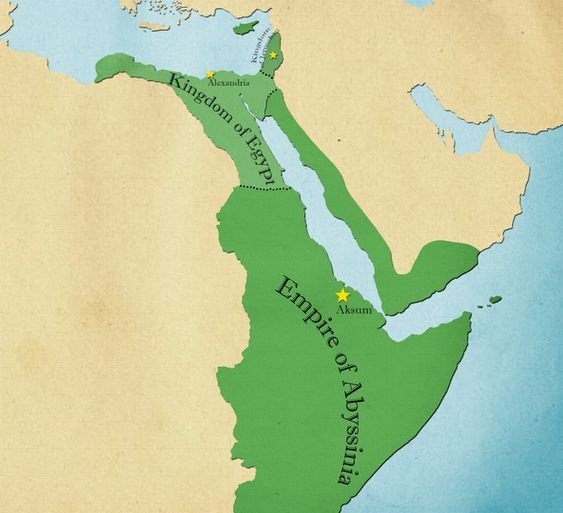
Haile Selassie’s leadership and bravery inspired the Ethiopian people and demonstrated the importance of strong leadership in times of adversity. Today, Haile Selassie is remembered as a national hero and symbol of Ethiopian independence and strength.
The legacy of the Ethiopian resistance also includes the impact it had on the wider African continent. The Ethiopian victory over Italy served as a powerful reminder of the strength and resilience of African nations in the face of colonialism.
It also helped to inspire resistance movements in other parts of the continent. This legacy of resistance continues to inspire and inform the African people, who have been able to reclaim their independence and sovereignty from colonial rule.
Read: The Role of African Resistance Movements in the Struggle Against Colonialism
The Current Situation in Ethiopia
A major challenge facing Ethiopia today is the ongoing political and economic reforms. The country is undergoing a major transition, with new leaders, institutions, and policies being implemented as it strives to build a more democratic, stable, and prosperous future.
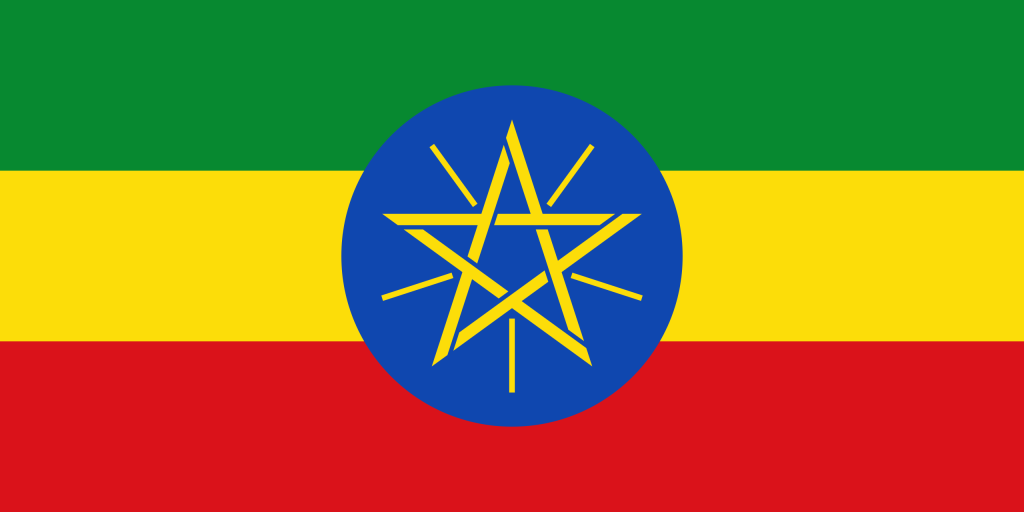
This transition has been marked by both progress and setbacks as various actors and interests seek to shape the direction and outcome of these reforms.
Despite these challenges, Ethiopia has many opportunities to continue its progress toward a better future. The country has a large young population, abundant natural resources, and a growing economy.
We Design & Develop Websites, Android & iOS Apps
Looking to transform your digital presence? We specialize in creating stunning websites and powerful mobile apps for Android and iOS. Let us bring your vision to life with innovative, tailored solutions!
Get Started TodayThese potentials provide a foundation for future growth and development. In addition, Ethiopia is becoming increasingly influential on the regional and international stages. And the country is also seen as a key player in efforts to promote peace, stability, and prosperity in the region and beyond.
Before you go…
Hey, thank you for reading this blog to the end. I hope it was helpful. Let me tell you a little bit about Nicholas Idoko Technologies. We help businesses and companies build an online presence by developing web, mobile, desktop, and blockchain applications.
We also help aspiring software developers and programmers learn the skills they need to have a successful career. Take your first step to becoming a programming boss by joining our Learn To Code academy today!
Be sure to contact us if you need more information or have any questions! We are readily available.
Put Your Tech Company on the Map!
Get featured on Nicholas Idoko’s Blog for just $200. Showcase your business, boost credibility, and reach a growing audience eager for tech solutions.
Publish Now










